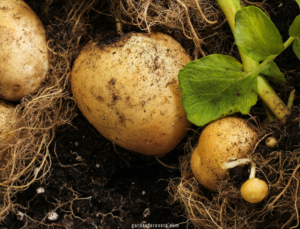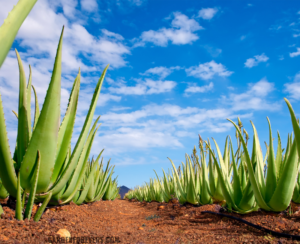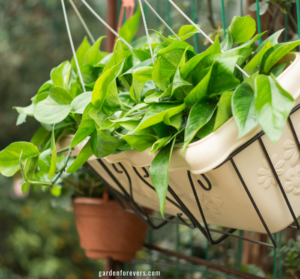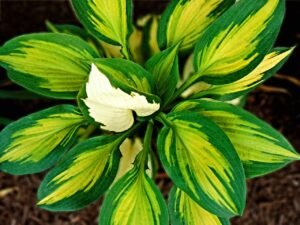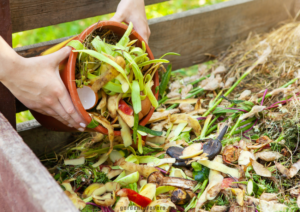Does Ivy Grow Better in Soil or Water?

Ivy plants are popular for their ability to grow in a variety of conditions, whether indoors or outdoors. But one question that many plant lovers ask is, “Does ivy grow better in soil or water?” To answer this, let’s take a closer look at how ivy behaves in both environments.
Growing Ivy in Soil
Soil is the natural habitat for most plants, and ivy is no exception. When you grow ivy in soil, you’re giving it access to nutrients, air, and water in a balanced way. Soil provides the ivy with minerals and organic matter that are essential for growth. If you’ve ever seen ivy climbing up a garden wall or spreading across the ground, it’s likely rooted in soil.
Here are some reasons why ivy grows well in soil:
- Nutrient Availability: Soil contains natural nutrients like nitrogen, phosphorus, and potassium. These elements help ivy grow stronger roots, larger leaves, and develop more vines. You can also add fertilizer if needed to boost growth.
- Root Stability: In soil, ivy can establish deep roots that anchor it firmly, allowing it to grow both vertically and horizontally without much trouble. This is particularly useful if you want to train your ivy to cover walls, fences, or trellises.
- Moisture Control: While soil retains water, it also allows excess water to drain. This means the ivy can access moisture when it needs it but won’t be sitting in water that could lead to root rot.
That said, soil-grown ivy does come with some challenges. You need to keep an eye on the water levels, making sure the soil doesn’t dry out completely or get waterlogged. Depending on where you live, soil quality might vary, and poor soil can slow down growth.
Growing Ivy in Water
On the other hand, ivy can also grow in water. This is known as hydroponic growth, and it’s a method that has gained popularity because of how easy it is to set up. All you need is a healthy cutting of ivy, a glass or jar, and some clean water. Within a few weeks, roots begin to sprout, and the ivy grows beautifully.
So, why would someone choose to grow ivy in water?
- Low Maintenance: Growing ivy in water is very low maintenance. You don’t need to worry about soil quality, pests that live in the dirt, or over-watering. As long as the water is clean and changed regularly, the plant will continue to grow.
- Aesthetic Appeal: Ivy growing in water can be a decorative piece in your home. A glass jar filled with water and ivy vines makes for an attractive, minimalist display. The roots are visible through the glass, which can be an interesting focal point for plant enthusiasts.
- No Mess: Since there’s no soil involved, you don’t have to worry about dirt spilling on your window sills or furniture. This makes it a great option for people who live in small spaces or prefer a tidier plant setup.
However, ivy grown in water does have its limitations. While it will grow in water, the growth rate might be slower compared to soil. Water doesn’t provide the same range of nutrients that soil does, which means the plant may not grow as large or as fast. Also, after some time, the ivy might need additional care or even transfer to soil for long-term health, as roots that grow in water can become fragile over time.
Comparing Growth in Soil and Water
Now that we’ve explored how ivy grows in both soil and water, let’s compare the two in terms of growth, care, and potential problems.
- Growth Rate: Ivy tends to grow faster in soil than in water. Soil provides the plant with more nutrients and support, leading to faster growth and bigger vines. In water, the plant may grow slower because it lacks the nutrients found in soil.
- Root Development: In soil, ivy develops strong and deep roots, which helps the plant anchor itself better and spread. In water, the roots remain smaller and can become fragile over time. If the water isn’t changed regularly, the roots can also become slimy or start to rot.
- Ease of Care: Growing ivy in water is easier in the short term. You just need to change the water regularly and keep it clean. Soil-grown ivy requires more attention, like watering schedules, monitoring the moisture levels, and ensuring the soil doesn’t dry out or become too soggy.
- Aesthetic and Practicality: Water-grown ivy looks great in a minimalist setting and can be perfect for indoor displays. Soil-grown ivy, however, is more suited for outdoor growth or larger indoor spaces where the plant can expand and climb.
Long-Term Success
For long-term growth and overall plant health, ivy does best in soil. This is its natural environment and where it thrives over time. While growing ivy in water is convenient and visually appealing, the plant’s long-term needs might not be fully met in water. Soil gives ivy access to more consistent nutrients, better root development, and a stable growing environment.
That being said, it’s perfectly fine to start ivy in water and later transfer it to soil once the roots are established. Many people do this as a way to propagate new plants, and it’s a simple method to ensure that your ivy cutting grows strong before planting it in soil.
Final Thoughts: Which Is Better?
So, does ivy grow better in soil or water? The answer depends on what you’re looking for. If you want quick, easy, and mess-free indoor growth, water is a great option for short-term care. If you’re looking for more robust, long-term growth with larger vines and leaves, soil is the way to go. Each method has its benefits and challenges, but ultimately, ivy is a hardy plant that can adapt to both environments.
The key to success lies in understanding what your ivy needs and providing the right conditions. Whether in water or soil, giving your ivy the proper attention, light, and care will ensure it grows healthy and strong.
So, if you’re still unsure, why not try both? Start a cutting in water and watch it grow. Once it’s developed some roots, plant it in soil and let it spread its vines. In the end, it’s all about finding what works best for you and your ivy.
Related
FAQs
Can ivy grow in water forever?
Answer: Yes, ivy can grow in water for an extended period, but it may not thrive as well as it would in soil.
How often should I change the water if I’m growing ivy in it?
Answer: You should change the water every 1-2 weeks to keep it fresh and prevent the roots from rotting. If you notice any discoloration or an unpleasant smell, change the water immediately.
Do I need to add fertilizer to water-grown ivy?
Answer: Ivy in water doesn’t typically require fertilizer, but if you notice slow growth or yellowing leaves, adding a water-soluble fertilizer in small amounts may help.
What are the common problems with growing ivy in water?
Answer: The main issue with growing ivy in water is root rot, which can occur if the water is not changed regularly. The plant may also experience slower growth and develop weaker roots compared to ivy grown in soil.






